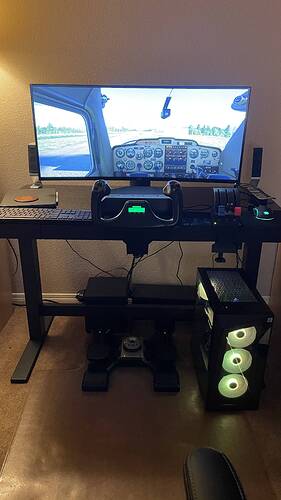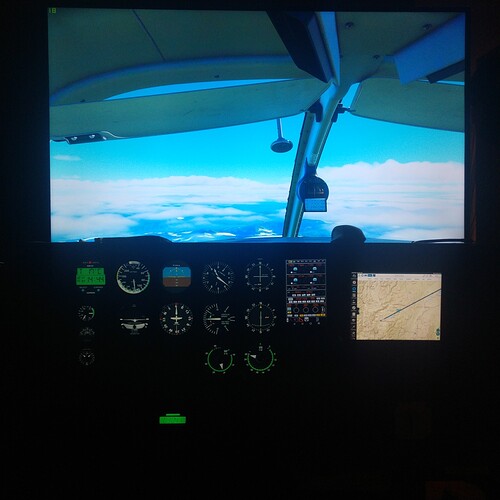Here is the bottom line from a long time private pilot:
The more time you use any flight simulator (MSFS, X-Plane, etc) the better the student -and- pilot you will be. Period - at any stage of your IRL flying career. Doesn’t matter what equipment you have in the home cockpit, or how many pixels your monitor has. It matters that you are engaged with an airplane. Heck - I used to fly with keyboard on MS’s first version.
The more you simulate the safety aspects of flight and fuel planning, starting cold and dark, using checklists, the better student and IRL pilot you will be.
I was a student in the 1980’s, and IFR certified in 2009. In all cases, practicing with whatever simulator existed at the time improved my ability to interpret and understand the instruments, interpret and understand the view of the runway on approach or the world and horizon when practicing maneuvers, as well as learn the muscle memory needed to “fly”. When you practice your last or next flight lesson or a cross country flight in the simulator, you find you are able to anticipate the IRL flight and stay ahead of the aircraft AND your instructor. Being practiced and confident with the instructor will allow the instructor to teach you more than just the minimum requirements. In the IRL flight you can “tune” your reflexes to the real plane’s controls, as well as understand the butt-in-seat feeling of real flying because you already understand what the airplane and the world is telling you.
Simulators can’t teach you the nuances of “coordinated flight - good rudder skills” and “P-Factor”, or really good landing flare technique as much as IRL flight. Simulators can’t do ATC well, which is intimidating to students IRL.
I can’t stress enough that practicing flying the instruments and emergencies will save your life. Odds are you will end up in a cloud or becoming a glider by accident, or some other thing that makes you NEED to manage your airspeed and attitude without looking outside and/or without panicking. I did lose my engine while a young pilot and because I could READ the instruments in the cockpit and had practiced engine out scenarios in sims, I was able to manage the best glide speed, aviate, navigate and communicate over a city on a poor visibility day to find a suitable landing. Simulators give 99% of that at 1% of the cost.
So even a basic computer setup with low graphics and a basic yoke w/throttle is all you really need to get HUGE benefits from a flight sim. Anything above that is gaming - or replacing the real flying experience because you’re not doing it IRL. (If you’re in the US) You’ll notice the “FAA certified basic training simulator” at your flight school is pretty lame. There is a reason for that.
If you use the simulator AT LEAST the same number of hours of both classroom and instructor time, you’ve doubled your training experience for almost free. Do it!
Best wishes. Flying is a passion. Those that have it, live it.



 agree with you
agree with you